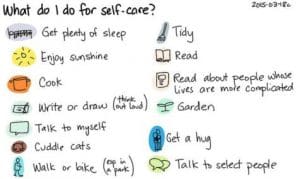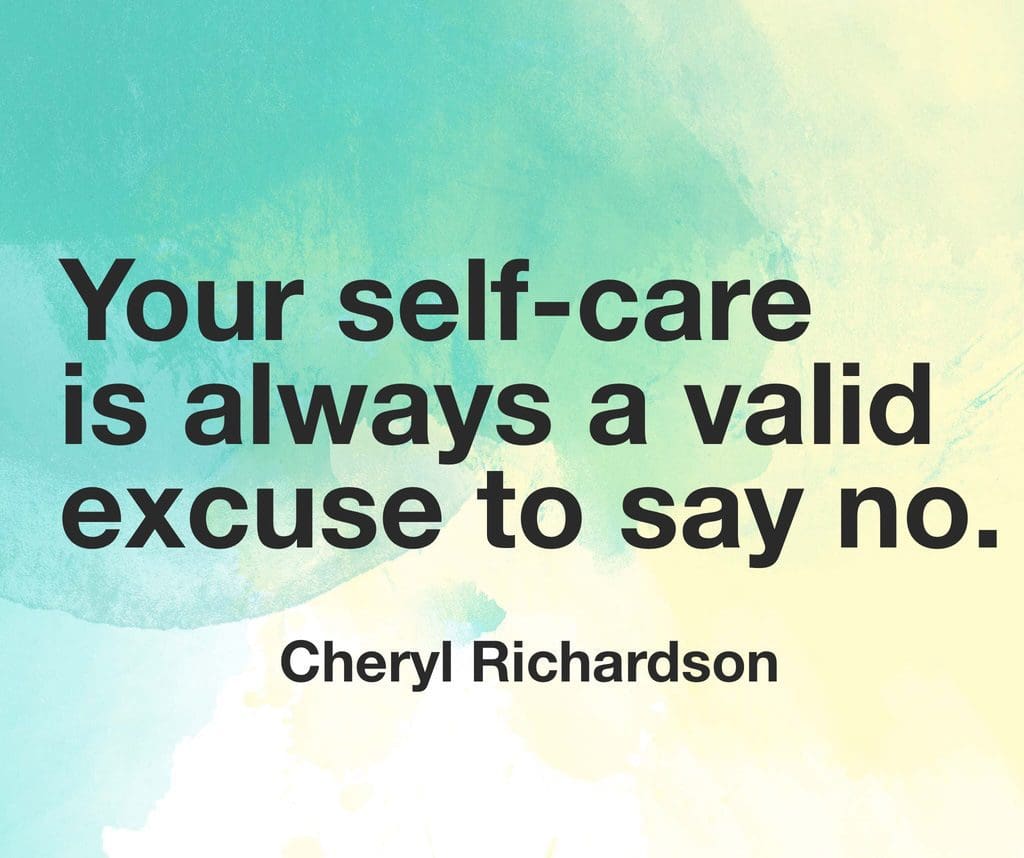The SOVA Project is happy to feature this blog post written by one in our team of fantastic SOVA Ambassadors—these are young people who help create meaningful blog posts for us to share.
You may have heard the term “self-care” being used on social media or in interactions with other people. It’s an idea that has only recently become popular.
I have seen arguments both for and against self-care. Some people believe it’s a selfish fad that emphasizes narcissistic behaviors and attitudes, because of the focus on “self.” But if you think about it, a lot of people our age, especially girls, have been trained to take care of other people before we take care of ourselves.

One primary purpose of self-care is to set boundaries, recharge yourself, and establish disciplines that help you be happier, more relaxed, and better able to function in your relationships with other people.
I have anxiety that is present pretty much all the time. In order to be the best person I can be, I have adopted self-care practices to help me let go of some of that anxiety at the end of each day.
So, what exactly is self-care?


 The internet is not going anywhere—there is no doubt that it’s an essential part of our lives. The online world can make our lives more convenient—it gives us the means to communicate efficiently, purchase anything we want, and access our favorite forms of entertainment with a click of a button.
The internet is not going anywhere—there is no doubt that it’s an essential part of our lives. The online world can make our lives more convenient—it gives us the means to communicate efficiently, purchase anything we want, and access our favorite forms of entertainment with a click of a button.












